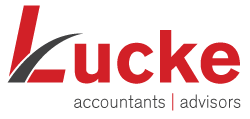Jeff Lucke, CPA, is the founder of Lucke & Associates, with an entrepreneurial background. Jeff has had ownership interests in businesses within several industries including automotive, construction, healthcare, telecommunications, and restaurants, as well as being active in real estate. As an owner of a growing CPA firm and other businesses, he has gained unique insights into the challenges and issues that face other growing businesses that most other CPAs do not have. This kind of knowledge ultimately benefits every one of the firm’s clients. He is very involved with clients and becomes deeply involved in their businesses and helping them succeed. Jeff is a graduate of the University of Nebraska and holds a Bachelor of Science in Accounting; his professional affiliations include the AICPA and KSCPA. Jeff currently serves a board member for his community on the Construction Financial Managers Association, the American Diabetes Association, and Big Brothers Big Sisters.
With the end of the year fast approaching, now is the time to take a closer look at tax planning strategies that could reduce your tax bill for 2022. General Tax Planning Strategies General tax planning strategies for individuals include accelerating or deferring income and deductions and carefully considering timing-related tax planning strategies concerning investments,…
For many people buying a home – whether it’s a fixer-upper in an up-and-coming neighborhood or that custom home you’ve always dreamed of – is a milestone event. While there is often a steep learning curve associated with buying and owning a home, there are also some perks – at least when it comes to…
Cash flow is the lifeblood of every small business but many business owners underestimate just how vital managing cash flow is to their business’s success. In fact, a healthy cash flow is more important than your business’s ability to deliver its goods and services. While that might seem counterintuitive, consider this: if you fail to…
Understanding marginal and effective tax rates are important for tax planning purposes; however, many taxpayers don’t fully understand the differences. Let’s take a closer look: Marginal Tax Rate The United States has a progressive tax system. The more money you earn, the higher your tax rate is and the more taxes you pay to the…
When the IRS needs to ask a question about a taxpayer’s tax return, notify them about a change to their account, or request a payment, it often mails a letter or notice to the taxpayer. Taxpayers should know that the IRS sends millions of these letters and notices to taxpayers for a variety of reasons.…
Keeping full and accurate homeowner records is not only vital for claiming deductions on your tax return, but also for determining the basis or adjusted basis of your home. These records include your purchase contract and settlement papers if you bought the property, or other objective evidence if you acquired it by gift, inheritance, or…
According to the US Small Business Administration, small businesses employ half of all private-sector employees in the United States. However, a majority of small businesses do not offer their workers retirement savings benefits. If you’re like many other small business owners in the United States, you may be considering the various retirement plan options available…
Small employer HRAs or QSEHRAs (Qualified Small Employer Health Reimbursement Arrangements) allow small businesses without group health plans to set aside money, tax-free, for employees to use toward medical expenses – including the cost of buying health insurance. Here’s what small business owners need to know about QSEHRAs. Background Included in the 21st Century Cures…
The Inflation Reduction Act (IRA), signed into law on August 16, 2022, includes provisions affecting businesses, individuals, the clean-energy industry, healthcare, and more. Let’s take a look: Businesses Sec. 461(l) Business Loss Limitation. The pass-through tax deduction for small business owners (sole proprietorships, some limited liability companies, partnerships, and S-corporations) was enacted under tax reform (TCJA…
By law, all taxpayers have fundamental rights when interacting with the IRS, and all taxpayers should know and understand their rights. Ten categories of rights are presented in the Taxpayer Bill of Rights. Here’s an overview: 1. The right to be informed. Taxpayers have the right to know what they need to do to comply with…










